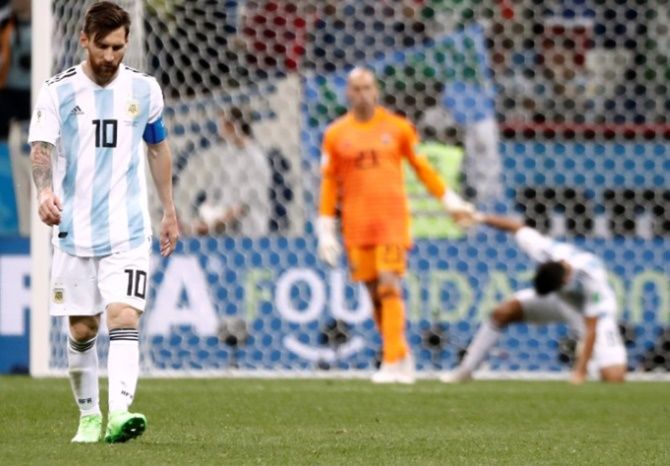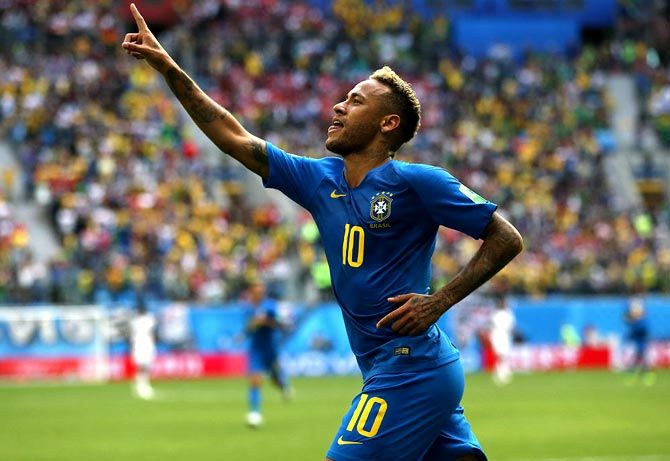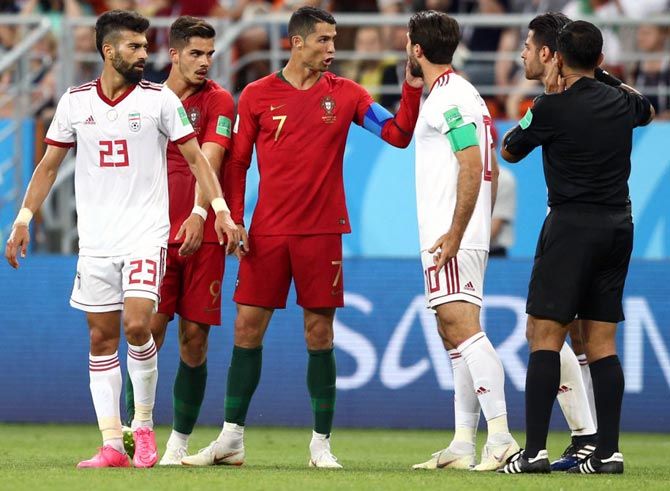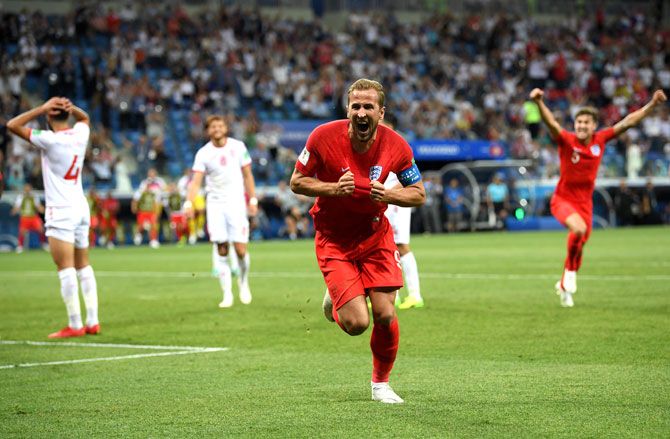 | « Back to article | Print this article |
The World Cup captain was a remarkable species: Always trying, pushing, lifting, harassing, delivering; the kind who would unhesitatingly jump into the deep end to save the day.
They're all gone now, says Dhruv Munjal.

There are moments in the football World Cup's multicoloured 88-year-old existence that will stand out forever: Glorious moments of unadulterated euphoria that are as special as the showpiece event itself.
So many of them have involved great captains: Ray Wilson and Geoff Hurst holding up Bobby Moore as he posed with the Jules Rimet Trophy in 1966; Franz Beckenbauer offering a reticent smile on the winner's podium in 1974; Diego Maradona rejoicing amid a sea of people in the middle of the Azteca Stadium pitch in 1986; Cafu, with his medal swung backwards and 100% Jardim Irene scrawled across his shirt, kissing the trophy in 2002.
A part of you can instantly recall these images not so much for the spectacular nature of what they represent, but for the iconic leaders who invariably -- and deservedly -- became the faces of these triumphs.
Moore, Beckenbauer, Maradona and Cafu were magnetic, altruistic personalities who could not only galvanise teams but entire nations.
And Johan Cruyff and Sócrates, two captains who suffered outrageous cruelty at the hands of the footballing gods, were equally accomplished at spurring their players on despite having failed to take them all the way at the World Cup.
You don't need distinguished football expertise to deduce that they don't make footballers like them anymore.

The 2018 World Cup in Russia is replete with talented players, but perhaps none possesses the charisma of the big characters that once ensured international football wasn't merely an extension of its club counterpart, but a unique, impassioned contest of its own.
The World Cup captain was a remarkable species: Always trying, pushing, lifting, harassing, delivering; the kind who would unhesitatingly jump into the deep end to save the day. They're all gone now.
Former Arsenal manager Arsene Wenger, speaking on beIN Sports after Brazil's 1-1 draw with Switzerland, bemoaned this lack of natural leaders among players in the modern game.
He predictably singled out Neymar, whose overplaying and school playground-like selfishness clearly upset the fluidity of the Brazilian offence against the Swiss.
Wenger argued that no matter who Neymar's captain was, he would never be able to pull him up simply because the PSG forward was a 'superstar'.
Brazil's captain on the day was Marcelo, a sprightly Real Madrid left-back who isn't afraid of saying a word or two. But chances are that even he would have hesitated given that it was Neymar of all people engineering the colossal mess.
Intriguingly, Brazil's coach, Tite, plans to rotate the armband during the tournament -- a highly unusual policy that is perhaps indicative of how the captain's role has shrunk.

Teams with permanent captains don't inspire any great confidence, either.
Manuel Neuer, Hugo Lloris, Eden Hazard and Robert Lewandowksi are all excellent and vastly experienced footballers but not captaincy material.
And for all their world domination, even the stewardships of Cristiano Ronaldo and Lionel Messi mostly hinge on their own performances.
When Ronaldo is in the mood, the world is a lovely place, as Portuguese fans have experienced thus far.
But when the opposition finds a way to strangle him, he cuts a desolate figure, accompanied by flailing arms and unconcealed irritancy.
And after Argentina was dismantled by Croatia, Messi was so terribly crestfallen himself that it would be fatuous to expect him to pull his side together to stem the slide.
It isn't these players' lack of shouting or frantic gesticulating on the pitch that renders their leadership ineffectual; they simply do not have the larger-than-life personas that once led to the clash of armbands being a subplot in itself.
Wenger himself had the honour of managing Tony Adams and Patrick Vieira, two men who gave the other team a taste of battle even before the match had begun.
When they stood at the head of the tunnel, chest out and battle-tank frames staring menacingly into the distance, the other team instantly realised the enormity of the challenge before it.
Much has changed since. Young players may not be 'soft', but their strengths are no longer manifest in matters of leadership.
Moreover, the modern game is a victim of individualism, where players acquire the status of superstars who often grow bigger than the teams themselves.
This is further aggravated by 20-something footballers gaining access to too much too young.
Neymar has had his hair done thrice in the past 10 days -- not the kind of guy who will strike fear in the hearts of the opposition.
Unthinkably, he was once the full-time skipper of the national side.

The role of a captain in a football game is naturally arguable.
Unlike cricket, his say in selection matters is negligible and there is no bowling or fielding changes to take care of. Yet, he acts as the chief motivator.
When you are chasing a game, he urges you on with a magic potion of conviction, hope and desperation.
Sadly, we just don't see enough of that in international football now.
Barring probably Ronaldo, will the image of the captain who lifts the trophy on July 15, 2018 resonate with you 20 years down? I doubt it.